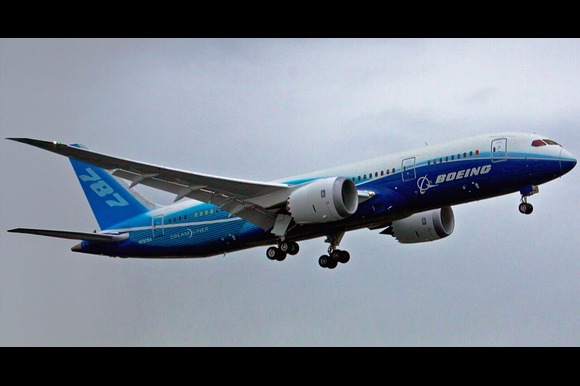Boeing is exploring the possibility of reselling numerous aircraft that are currently unable to be delivered to China due to tariffs, following the repatriation of a third jet to the United States amidst a delivery impasse that has attracted renewed criticism of Beijing from US President Donald Trump on Thursday. This initiative aims to avoid a recurrence of the expensive accumulation of undelivered jets experienced during previous safety and trade crises, as the manufacturer strives to mitigate tensions that could undermine its financial stability and debt repayment efforts.
During an analyst call on Wednesday, Boeing took the unusual step of publicly indicating the potential sale of these aircraft, asserting that there would be ample demand in a competitive jet market. CFO Brian West noted, ‘Customers are reaching out, requesting additional airplanes.’ Such discussions are typically conducted discreetly. CEO Kelly Ortberg remarked, ‘Due to the tariffs, many of our customers in China have expressed that they will not accept delivery.’ Industry insiders interpreted these remarks as a message to both Beijing and Washington, highlighting that the tariff dispute between the two largest economies poses a risk of harm as Chinese airlines seek to expand their capacity while Boeing faces an increasing inventory.
Earlier this month, Trump escalated baseline tariffs on Chinese imports to 145 percent, prompting China to respond with a 125 percent tariff on US products. On Thursday, Trump urged Boeing to ‘default China’ for failing to take delivery of the aircraft it had agreed to purchase. ‘This is merely a small illustration of what China has inflicted upon the USA for years,’ Trump stated in a post on Truth Social. Boeing did not provide an immediate response to the post.
Washington had previously indicated a willingness to de-escalate the trade conflict, asserting earlier this week that the elevated tariffs between the US and China are not sustainable. Boeing ranks among the largest exporters in the US and has historically dispatched a quarter of its aircraft to China, although the proportion of Chinese airlines in its order backlog has now decreased to 10 percent as European competitor Airbus has gained market share.
Airbus has engaged in intermittent negotiations for over a year in an effort to secure a substantial order of up to 500 aircraft; however, sources within the industry indicate that China typically exercises caution regarding significant purchasing decisions during periods of geopolitical instability. Airbus has stated that it does not comment on any commercial negotiations that may or may not be occurring. Alternative markets for Boeing aircraft are being considered, including India, Latin America, and Southeast Asia, but discussions have only just begun due to their complexity and the uncertainty surrounding the tariff dispute.
Air India is viewed as a potential bidder for Air India Express. Experts caution that executing the plan to redirect aircraft to different buyers is not a straightforward process. According to industry publication Leeham News, locating new clients after the aircraft have been manufactured can be an expensive undertaking. Experts note that many aircraft components, such as cabins, are selected by airlines, and altering configurations could incur costs in the millions.
This process may also lead to a complicated web of contractual obligations and necessitate cooperation from the original purchaser. Meanwhile, China has called on Washington to lift the tariffs, yet its airlines are perceived as eager for new aircraft to satisfy demand and comply with domestic aircraft age regulations.
Airbus has engaged in intermittent negotiations for over a year in an effort to secure a substantial order of up to 500 aircraft. However, sources within the industry indicate that China typically exercises caution regarding significant purchasing decisions during periods of geopolitical instability. Airbus has stated that it does not comment on any commercial negotiations that may or may not be occurring. The situation is expected to be highly complex, with all parties demonstrating strength, yet none possessing a definitive advantage, according to a senior source in aircraft finance who requested anonymity. Boeing’s public position comes in the wake of tariff threats that jeopardize the aerospace sector’s long-standing duty-free trading status.
Nevertheless, senior industry officials assert that there is no concrete evidence supporting claims of an official ban by the Chinese government on American jets. The initiative to repatriate and re-market aircraft contrasts sharply with the previous five-year import freeze on 737 MAX jets into China amid earlier trade disputes. ‘We will not continue to manufacture aircraft for clients who are unwilling to accept them,’ Ortberg informed analysts.
Recently, two jets that were sent to China in March for delivery to Xiamen Airlines were returned to Boeing in Seattle. Additionally, a third 737 MAX was observed flying from Boeing’s Zhoushan completion center near Shanghai to Guam, a common stop for delivery flights crossing the Pacific, as per Flightradar24 data. This third aircraft was originally intended for Air China, although the airline did not provide a comment when approached. Boeing had anticipated delivering approximately 50 new planes to China for the remainder of this year, according to West, and is currently exploring options for re-marketing 41 aircraft that are either completed or in production.






